第27章
Here you get the true proportion of things.Read your daily news-sheet--that which costs threepence or that which costs a halfpenny--and muse upon the impression it leaves.It may be that a few books are "noticed"; granting that the "notice" is in any way noticeable, compare the space it occupies with that devoted to the material interests of life: you have a gauge of the real importance of intellectual endeavour to the people at large.No, the public which reads, in any sense of the word worth considering, is very, very small; the public which would feel no lack if all book-printing ceased to-morrow, is enormous.These announcements of learned works which strike one as so encouraging, are addressed, as a matter of fact, to a few thousand persons, scattered all over the English-speaking world.Many of the most valuable books slowly achieve the sale of a few hundred copies.Gather from all the ends of the British Empire the men and women who purchase grave literature as a matter of course, who habitually seek it in public libraries, in short who regard it as a necessity of life, and I am much mistaken if they could not comfortably assemble in the Albert Hall.
But even granting this, is it not an obvious fact that our age tends to the civilized habit of mind, as displayed in a love for intellectual things? Was there ever a time which saw the literature of knowledge and of the emotions so widely distributed? Does not the minority of the truly intelligent exercise a vast and profound influence? Does it not in truth lead the way, however slowly and irregularly the multitude may follow?
I should like to believe it.When gloomy evidence is thrust upon me, I often say to myself: Think of the frequency of the reasonable man; think of him everywhere labouring to spread the light; how is it possible that such efforts should be overborne by forces of blind brutality, now that the human race has got so far?--Yes, yes; but this mortal whom I caress as reasonable, as enlightened and enlightening, this author, investigator, lecturer, or studious gentleman, to whose coat-tails I cling, does he always represent justice and peace, sweetness of manners, purity of life--all the things which makes for true civilization? Here is a fallacy of bookish thought.Experience offers proof on every hand that vigorous mental life may be but one side of a personality, of which the other is moral barbarism.A man may be a fine archaeologist, and yet have no sympathy with human ideals.The historian, the biographer, even the poet, may be a money-market gambler, a social toady, a clamorous Chauvinist, or an unscrupulous wire-puller.As for "leaders of science," what optimist will dare to proclaim them on the side of the gentle virtues? And if one must needs think in this way of those who stand forth, professed instructors and inspirers, what of those who merely listen? The reading-public--oh, the reading-public! Hardly will a prudent statistician venture to declare that one in every score of those who actually read sterling books do so with comprehension of their author.These dainty series of noble and delightful works, which have so seemingly wide an acceptance, think you they vouch for true appreciation in all who buy them? Remember those who purchase to follow the fashion, to impose upon their neighbour, or even to flatter themselves; think of those who wish to make cheap presents, and those who are merely pleased by the outer aspect of the volume.Above all, bear in mind that busy throng whose zeal is according neither to knowledge nor to conviction, the host of the half-educated, characteristic and peril of our time.They, indeed, purchase and purchase largely.Heaven forbid that I should not recognize the few among them whose bent of brain and of conscience justifies their fervour; to such--the ten in ten thousand--be all aid and brotherly solace! But the glib many, the perky mispronouncers of titles and of authors' names, the twanging murderers of rhythm, the maulers of the uncut edge at sixpence extra, the ready-reckoners of bibliopolic discount--am I to see in these a witness of my hope for the century to come?
I am told that their semi-education will be integrated.We are in a transition stage, between the bad old time when only a few had academic privileges, and that happy future which will see all men liberally instructed.Unfortunately for this argument, education is a thing of which only the few are capable; teach as you will, only a small percentage will profit by your most zealous energy.On an ungenerous soil it is vain to look for rich crops.Your average mortal will be your average mortal still: and if he grow conscious of power, if he becomes vocal and self-assertive, if he get into his hands all the material resources of the country, why, you have a state of things such as at present looms menacingly before every Englishman blessed--or cursed--with an unpopular spirit.